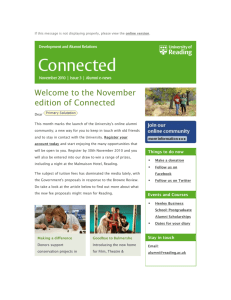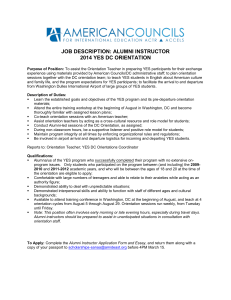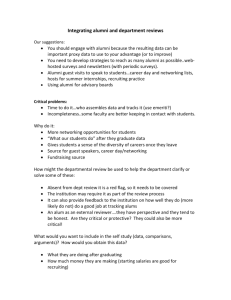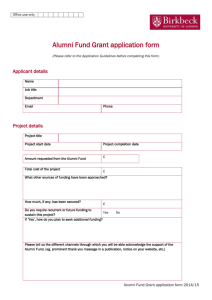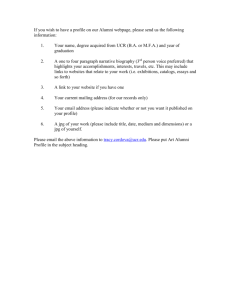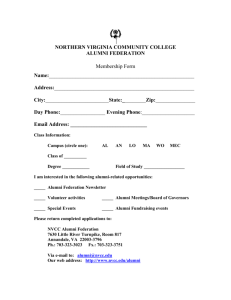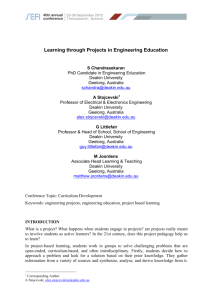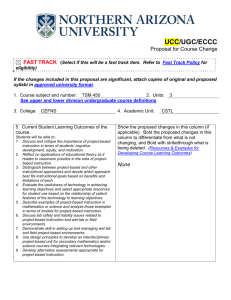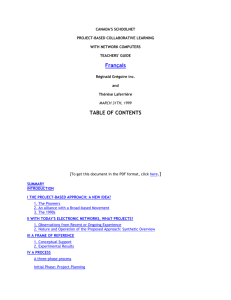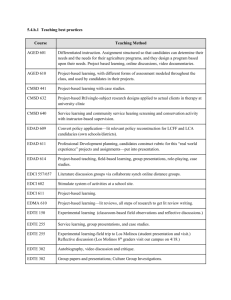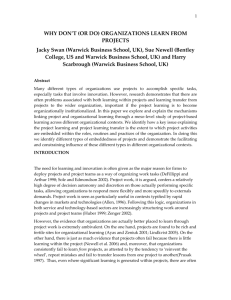Impact of Professionally
advertisement
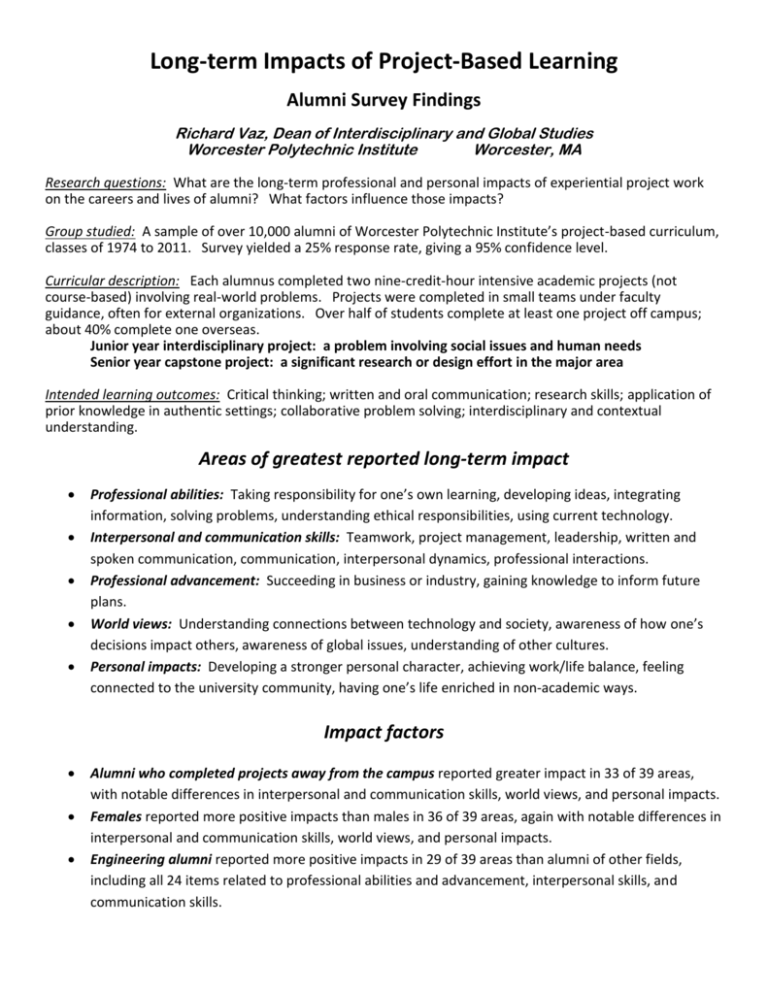
Long-term Impacts of Project-Based Learning Alumni Survey Findings Richard Vaz, Dean of Interdisciplinary and Global Studies Worcester Polytechnic Institute Worcester, MA Research questions: What are the long-term professional and personal impacts of experiential project work on the careers and lives of alumni? What factors influence those impacts? Group studied: A sample of over 10,000 alumni of Worcester Polytechnic Institute’s project-based curriculum, classes of 1974 to 2011. Survey yielded a 25% response rate, giving a 95% confidence level. Curricular description: Each alumnus completed two nine-credit-hour intensive academic projects (not course-based) involving real-world problems. Projects were completed in small teams under faculty guidance, often for external organizations. Over half of students complete at least one project off campus; about 40% complete one overseas. Junior year interdisciplinary project: a problem involving social issues and human needs Senior year capstone project: a significant research or design effort in the major area Intended learning outcomes: Critical thinking; written and oral communication; research skills; application of prior knowledge in authentic settings; collaborative problem solving; interdisciplinary and contextual understanding. Areas of greatest reported long-term impact Professional abilities: Taking responsibility for one’s own learning, developing ideas, integrating information, solving problems, understanding ethical responsibilities, using current technology. Interpersonal and communication skills: Teamwork, project management, leadership, written and spoken communication, communication, interpersonal dynamics, professional interactions. Professional advancement: Succeeding in business or industry, gaining knowledge to inform future plans. World views: Understanding connections between technology and society, awareness of how one’s decisions impact others, awareness of global issues, understanding of other cultures. Personal impacts: Developing a stronger personal character, achieving work/life balance, feeling connected to the university community, having one’s life enriched in non-academic ways. Impact factors Alumni who completed projects away from the campus reported greater impact in 33 of 39 areas, with notable differences in interpersonal and communication skills, world views, and personal impacts. Females reported more positive impacts than males in 36 of 39 areas, again with notable differences in interpersonal and communication skills, world views, and personal impacts. Engineering alumni reported more positive impacts in 29 of 39 areas than alumni of other fields, including all 24 items related to professional abilities and advancement, interpersonal skills, and communication skills. Long-term Impacts of Project-Based Learning (n=2532) Professional Impact Area % Reporting Positive Impact Taking responsibility for one’s own learning 89 Developing ideas 89 Solving problems 88 Having effective professional interactions 87 Functioning effectively on a team 86 Effectively managing projects 86 Writing clearly and effectively 83 Succeeding in business or industry 78 Being an effective leader 78 Speaking clearly and effectively 76 Personal Impact Area % Reporting Positive Impact Developing a stronger personal character 87 Feeling one’s own ideas are important 79 Feeling able to make a difference 66 Having an enriched personal life 64 Feeling connected to WPI 62 Achieving work/life balance 53 Impact on World Views % Reporting Positive Impact Viewing issues from different perspectives 79 Understanding connections between technology and society 77 Understanding global issues 55 Understanding people of other cultures 51 Developing respect of cultures outside one’s own 49 References 1. Heinricher, A., P. Quinn, R. Vaz, and K. Rissmiller, “Long-term Impacts of Project-Based Learning in Science and Engineering,” Proceedings of the 2013 ASEE Annual Conference, Atlanta, Georgia, June 2013. 2. Vaz, R., P. Quinn, A. Heinricher, and K. Rissmiller, “Gender Differences in the Long-Term Impacts of Project-Based Learning,” Proceedings of the 2013 ASEE Annual Conference, Atlanta, Georgia, June 2013. Vaz, R., and P. Quinn, “Long Term Impacts of Off-Campus Project Work on Student Learning and Development,” Proceedings of FIE 2014, Madrid, Spain, October 2014. 3.

